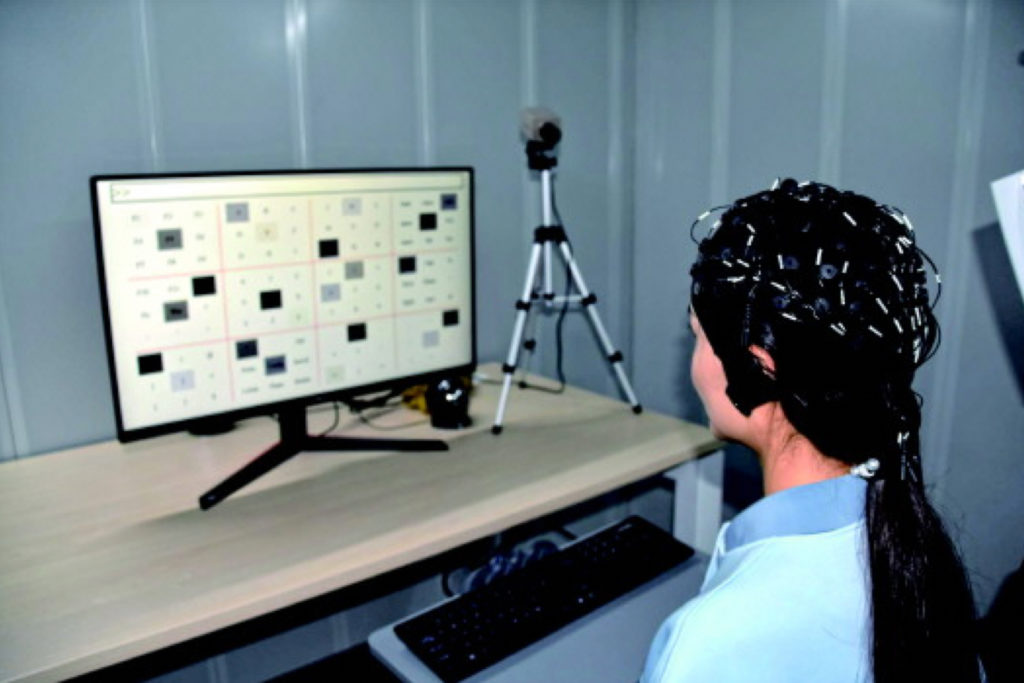A cap picks up electroencephalograph (EEC) signals and sends them to a computer. Brain patterns, which carry the user’s intent, are decoded by an algorithm on the device. Eventually, the information is converted into instructions and triggers an action. Using this interface, WEI Siwen, a graduate student at Tianjin University, typed 69 characters in one minute via mind control, winning the first prize in a BCI competition held earlier this year. The speed proved faster than hand typing.
The device is applicable in medicine, rehabilitation, brain cognition, neural feedback and signal processing, researchers said, adding that the BCI technology will be adapted for civilian use, and the device will become easier to carry and use, becoming wearable in the future.
Xinhuanet, December 24, 2019

